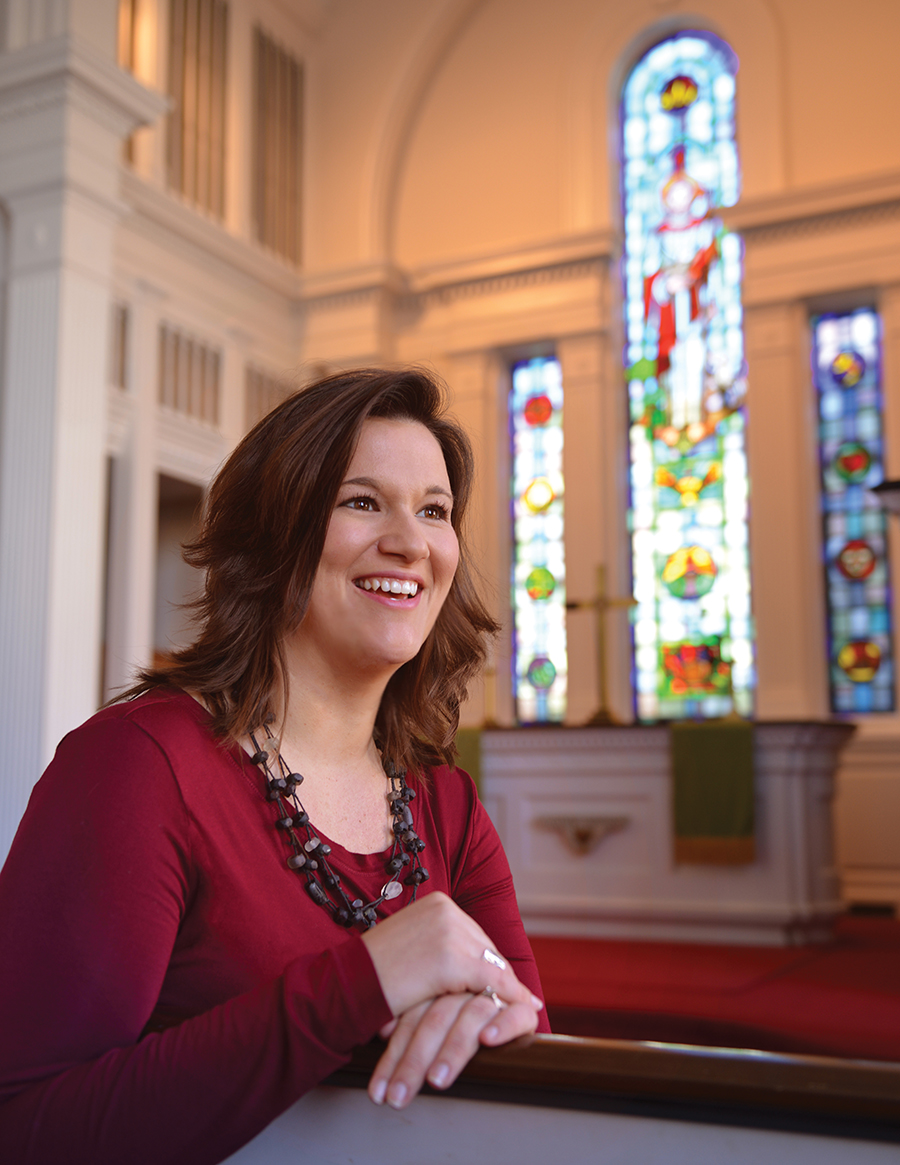The City of Churches has always raised money for the poor, but a recent movement has seen them join forces and roll up their sleeves to make a bigger impact on the community they love.
By Jean Hardiman
HQ 92 | WINTER 2016
Driving along Fifth Avenue in downtown Huntington, they just might take one’s breath away. Huntington’s churches have stood, grandly, through flooding, tragedy and economic hardship. They’re a symbol of their congregations’ love of God, built with the finest in architecture and craftsmanship. Through the decades, families dressed in their Sunday best have packed their pews each week.
But the faith of Huntington-area churches is now being demonstrated in new ways, ways that might not have been considered in years past. Ways in which the faithful are getting their hands dirty and maybe brushing shoulders with people whom before they might not have approached, let alone grown to love.
They open up their doors more during the week, serving free hot meals to the homeless and the addicted, bringing bag lunches and hope to the prostitutes, picking a neighborhood where they can hand out groceries, offering Monday night worship for people in the trenches of addiction recovery and filling backpacks with food so that each Friday, kids in need know they’ll have something to eat that weekend.
With the drug epidemic that has swept the region, touching families of every socio-economic background, Huntington’s churches have had more opportunity than ever to live out their faith. They’ve started new programs and strengthened old ones to help the people who need it the most.
“Huntington really is a city of churches. We have churches everywhere. If we do our job as believers, we can accomplish a lot,” says the Rev. Jana Stoner, children’s minister at Fifth Avenue Baptist Church and organizer of the Helpington program, in which church members join with members of First Presbyterian Church to lend a hand to West Huntington residents. “We need to reclaim Huntington, where there is purpose and a common goal of working together. As churches, we can create different programs, but we can also find where God is already working and join Him. There are a lot of organizations in town right now doing a lot of incredible things for God.”
The Rev. Chip Graves, pastor at Trinity Episcopal Church, has coined the phrase “metro theology” for how churches can take their assets and seek out the most effective ways to serve, whether it’s through new programs or enhancing existing ones of another group. It’s not new, he says. It’s just a name for what churches have been doing for years and should intentionally strive to do. In the end, it draws many people to God.

“It’s engagement,” he says. “ It’s meeting people where they are, ever listening, watching and being present with those in your immediate context. We need to be an active presence and respond with hospitality in the form of, ‘How can I best help or support you given my resources?’”
Last year brought a lot of firsts to Huntington, in terms of residents pitching in to combat addiction. One was an event at Harris Riverfront Park, where LifeHouse founder Rocky Meadows and local pastors organized the Movement of Hope, a gathering for worship, testimonies and chances for people to learn about the recovery services available in the area.
Gathered at the grassy, tiered riverfront were people of all backgrounds.
“I got to give communion to all these people who had never received communion,” Graves says. “They loved it. Some had tears in their eyes.”
Ultimately, Graves says, it’s about focusing on two things: loving God above any other and loving thy neighbor as thyself.
Graves’ concept of metro theology was based on his business background and has helped the church with its finances as well as living out faith. Its vast, once-mostly-empty church building is now providing space for local nonprofits, 12-step meetings, ballroom dance and much more. It hosts free concerts. Several churches also support the Cridlin Food and Clothing Pantry, located at Trinity. The church’s kitchen and fellowship hall now host The Gathering on Wednesdays, providing a free, quality meal to usually about 150 people.
“It’s crazy. You start with nothing, and people hear about it touching lives and changing hearts and they want to help,” Graves says. “More people are interested in outreach. We used to just write checks to help the poor, but we never really rolled our sleeves up and got to work. Now we are.”
Getting out of one’s comfort zone isn’t easy, but it’s worth it, says the Rev. Skip Seibel, pastor at First Presbyterian Church.
“I think as Christians, we’re commanded to go out and serve and extend God’s grace and mercy. When we do that, we are changed,” he says. “We become more compassionate and caring and understanding and empathetic. We get to know others as people and not just someone you see on the street. When you get out of your comfort zone, God really does His work.”

First Presbyterian provides meals to the Harmony House, and its members have done renovation work in the apartments there for the homeless. The church also works closely with Habitat for Humanity, partners with Fifth Avenue Baptist for the Blessings in a Backpack program at Central City Elementary and joined Marshall University and Christian Associates for the annual Empty Bowls event to support the Facing Hunger Foodbank, among many other ministries.
The more you get involved, the more you realize “we have a whole lot more in common than we thought,” Siebel says.
Members of First Presbyterian and Fifth Avenue Baptist put on orange T-shirts once a year and head to Huntington’s West End, where they can be seen doing everything from lawn work to painting to cleanup for residents.
Stoner remembers a conversation she had with a woman during one of those projects.
“Last year, we were working on (a woman’s) house, and she stopped me and said how grateful she was. She was just diagnosed with cancer, and it brought her hope that people were at her door. She just needed to know that people cared, and I just had to give credit back to God.”





